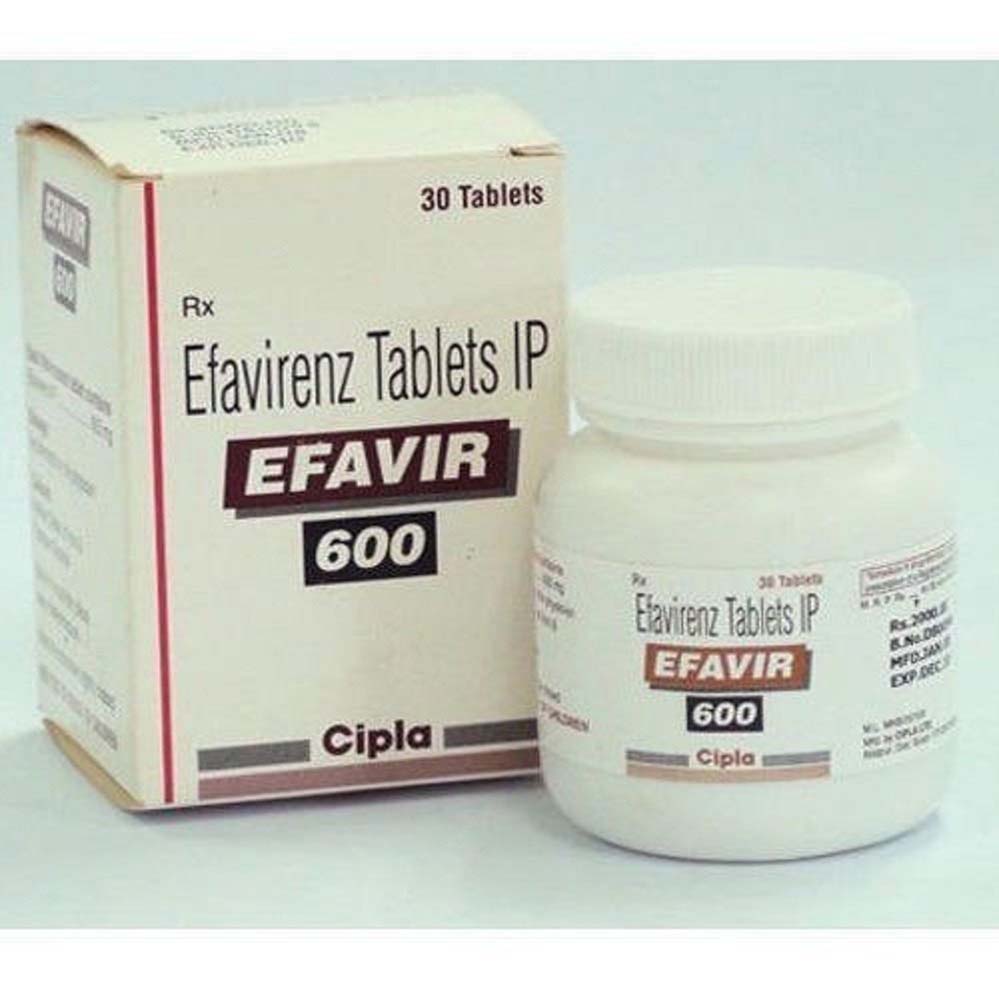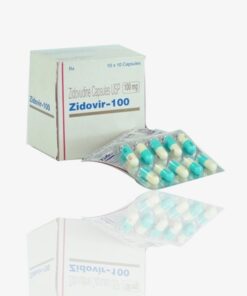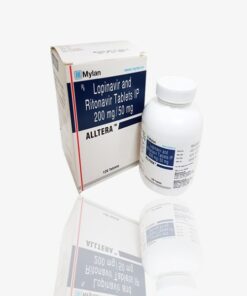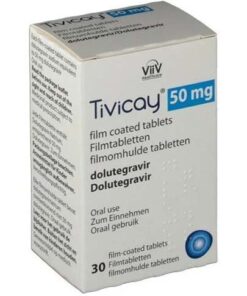Buy Efavir : Efavirenz 600 mg Tablets Online
$38.97
Brand Name : Efavir
Composition : Efavirenz
Manufactured by : Cipla Ltd.
Strength : 600 mg
Form : Tablets
Packing : Pack of 30 Tablets
Prescription Required *
Efavir is a prescription medication that contains the active ingredient Efavirenz, used in the management of human immunodeficiency virus (HIV) infections in combination with other antiretroviral medications. It belongs to a class of medications called non-nucleoside reverse transcriptase inhibitors (NNRTIs).
Uses:
Efavir is used to treat HIV infections. It works by inhibiting the reverse transcriptase enzyme, which is required for the replication of the virus. It can help to reduce viral load in the body and improve immune function.
How to Use:
Efavir should be taken orally as directed by the healthcare provider. The dosage and duration of treatment will depend on individual factors, such as the response to the medication and the medical condition being treated. It is important to follow the recommended dosage schedule and not miss any doses.
Storage Conditions:
Efavir should be stored at room temperature, away from direct sunlight and moisture. It should be stored out of the reach of children and pets. Do not use the medication beyond the expiration date.
Mechanism of Action:
Efavir works by inhibiting the reverse transcriptase enzyme, which is required for the replication of HIV. This prevents the virus from multiplying, reducing the viral load in the body, and improving the immune function.
Precautions:
Before taking Efavir, it is important to inform the healthcare provider about any known allergies, medical conditions, or medications currently being taken. Patients with liver disease, depression, or psychiatric conditions should be carefully monitored while taking this medication.
Contraindications:
Efavir is contraindicated in individuals who are allergic to Efavirenz or any other components of the medication. It should not be used in individuals with severe liver disease or certain psychiatric conditions.
Drug Interactions:
Efavir may interact with certain medications, such as blood thinners or anticonvulsants. It is important to inform the healthcare provider about all medications being taken to avoid potential drug interactions.
Overdose:
In case of an overdose of Efavir, immediate medical attention should be sought. Symptoms of overdose may include nausea, vomiting, dizziness, and confusion.
Side Effects:
Common side effects of Efavir include dizziness, headache, nausea, and abnormal dreams. Other less common side effects may include liver damage, depression, and changes in the heart rhythm. It is important to seek medical advice if any severe or persistent side effects occur.













Reviews
There are no reviews yet.